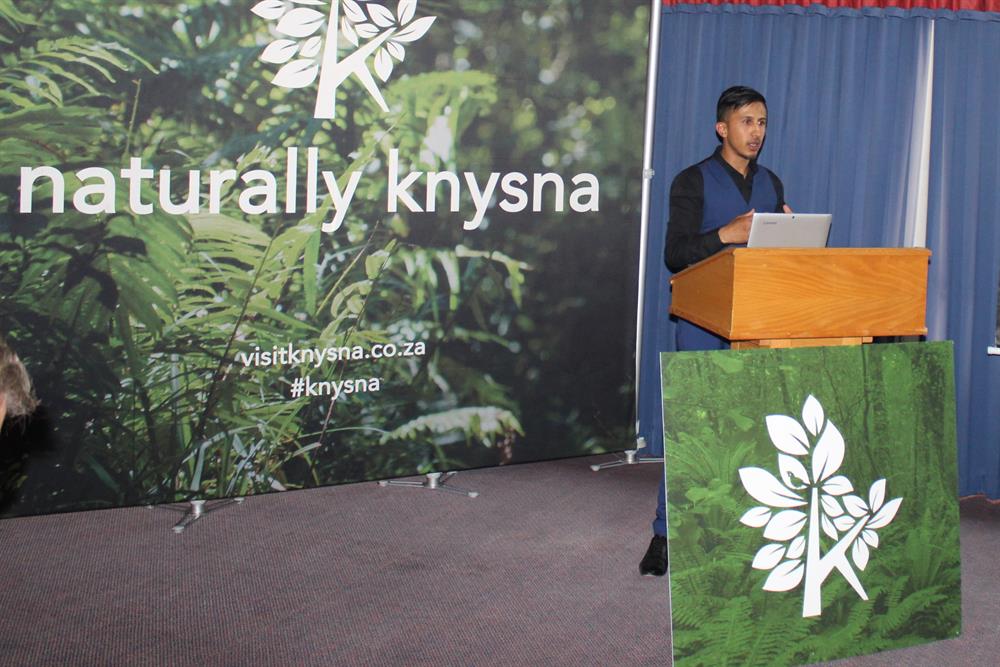KNYSNA NEWS - A presentation that lauds "halaal tourism" as the next big thing in the Garden Route was well received by members of Knysna Tourism during their recent AGM.
Tourism company Travel Juice director Shezaad Gani stated that between 400 000 and 600 000 Muslim visitors arrive in South Africa annually (4% to 6% of total arrivals), and that the 2017 Mastercard-Crescent Global Muslim Travel Index (GMTI) ranks South Africa fourth on its list of the top 10 *non-OIC countries for halaal tourism.
"South Africa is attractive to Muslims and Islam is well entrenched here. We have almost 1 000 mosques across the country and an abundance of certified halaal restaurants. But what about the Garden Route?
"As far as holiday destinations go, the Garden Route is the prime offering. But in terms of provision of halaal food and facilities, restaurants and establishments, we are lagging behind and missing out on opportunities to capitalise on spend by Muslim tourists."
'Plan of action needed'
A plan of action was required, Gani said, to accommodate halaal provisions so that Muslim tourists spend more time in the Garden Route.
"We need to harmonise the demands of this developing halaal travel and the needs of those looking for modern international tourism," he said, explaining that Muslim travellers arrive in South Africa from a host of different countries from the Middle East, Central and East Asia.
Last month, following on from the success of last year's Halaal International Trade Business Meeting, the Western Cape Province, Cape Town and provincial tourism entity Wesgro hosted Africa Halaal Week, which is intended to foster business linkages and conversation around opportunities within the halaal industry in Cape Town and the Western Cape, South Africa and the rest of Africa.
 Tourism company Travel Juice director Shezaad Gani speaking at Knysna Tourism's AGM recently. Photo: Yaseen Gaffar
Tourism company Travel Juice director Shezaad Gani speaking at Knysna Tourism's AGM recently. Photo: Yaseen Gaffar
Economic opportunities MEC Alan Winde, who was addressing a media briefing at the event staged in Cape Town from 15 to 18 October, stated that the growth potential of the halaal market presents huge opportunities for the region, and that the halaal market is worth a trillion dollars a year, which had shown growth potential of 6% and a product value of about $750-billion (R8.2-trillion).
'Trillions to be made'
Highlighting the importance of halaal in other sectors, Wesgro CEO Tim Harris referenced the Mastercard-HalalTrip Muslim Millennial Travel Report 2017 research, which projects that the total expenditure from Muslim millennial travellers alone will surpass $100-billion by 2025, while the overall Muslim travel segment estimated to reach $300-billion by 2026.
"Most Muslims will not compromise when it comes to halaal food; let's work together to develop and enhance our halaal offerings in Knysna – the pie is big," said Gani, who pointed out that halaal food options were very restricted along the Garden Route, which is the main reason why Muslim tourists opt for Cape Town.
Gani said that there is no business case for establishments to go fully halaal from day one, and that it makes sense to start by partnering with providers especially for halaal food.
"A phased approach would include options of halaal meals, and provision of prayer mats and prayer directional signage," he said.
"Halaal tourism is undoubtedly the fastest-growing sector of tourism globally. Given the overall attractiveness of this region, the Garden Route is well positioned to benefit from this growth. The question for the tourism industry here is, are we ready to leverage this opportunity?"
* The Organisation of Islamic Cooperation (OIC) has 57 member countries.
'We bring you the latest Knysna, Garden Route news'
















